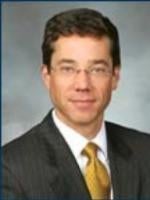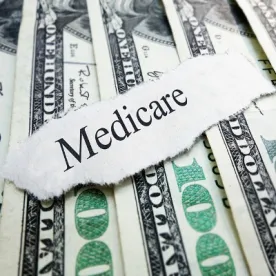The Centers for Medicare & Medicaid Services released the calendar year 2017 final rule implementing changes to the Medicare hospital Outpatient Prospective Payment System, or OPPS, including provisions implementing Section 603 of the Bipartisan Budget Act of 2015, a statutory change that affects payments to off-campus hospital outpatient departments established on or after November 2, 2015.
In Depth
On November 1, 2016, the Centers for Medicare & Medicaid Services (CMS) released the calendar year 2017 final rule implementing changes to the Medicare hospital Outpatient Prospective Payment System or OPPS (Final Rule), including provisions implementing Section 603 of the Bipartisan Budget Act of 2015, statutory change that affects payments to off-campus hospital outpatient departments established on or after November 2, 2015.
Under Section 603, effective January 1, 2017, most hospital off-campus provider-based departments (off-campus PBDs) that began furnishing services on or after November 2, 2015, (date of enactment of Section 603) will no longer be eligible to be paid under OPPS. How and how much they would be paid, and what other rules would apply to these entities and grandfathered facilities were left to CMS to determine. This much-anticipated Final Rule provides more clarity but also leaves some critical questions unresolved.
Section 603 does not apply to items and services furnished (1) by a dedicated emergency department (defined at 42 CFR 489.24(b)); (2) at “remote locations of a hospital” (i.e., a location where hospital inpatient services are furnished) and locations that are within 250 yards of a remote location of a hospital; and (3) at a location that was billing as an outpatient department of a hospital prior to November 2, 2015. Locations, items and services within the scope of these grandfathered exceptions are referred to by CMS as “excepted” locations, items and services.
The proposed rules to implement Section 603 that were released by CMS earlier this year generated significant concern from the hospital industry, as well as from US Congress, with many stakeholders strongly encouraging CMS to postpone implementation of Section 603, unless significant changes were made.
In the Final Rule, CMS retained many of the controversial aspects of the proposed rules, but made some favorable changes in response to stakeholder concerns, including establishing a new payment system for non-excepted services. Since the new payment system was not subject to prior comments, CMS is implementing the new payment system effective January 1, 2017, but the agency will take comments until December 31, 2016, in connection with refinements to the payment system for 2018 and future years.
Relocations and Service Expansions
Two of the most controversial elements of the proposed rule included CMS’s proposals to limit relocations of excepted locations and to limit expansions of excepted services at excepted locations. Under the proposed rule, excepted locations that relocated would lose excepted status (and be subject to the non-OPPS alternative payment system). Similarly, excepted locations that added new services [according to groups of “clinical families of services” defined by ambulatory payment classification (APC)] would be unable to receive OPPS payments for such new services.
As to relocations, CMS in the Final Rule largely adhered to the proposed standard. Specifically, an off-campus PBD that relocates from the physical address that was listed on the hospital’s Medicare enrollment form as of November 1, 2015, would be considered “new” and ineligible for continued excepted status. However, CMS will consider making exceptions limited to extraordinary circumstances outside a hospital’s control, such as natural disasters, significant seismic building code requirements, or significant public health and public safety issues, that necessitate moving to a new building (either temporarily or permanently). Exceptions will be evaluated on a case-by-case basis by the appropriate CMS Regional Office. CMS says in the Final Rule that it expects these exceptions to be rare. CMS expects to release sub-regulatory guidance with more details regarding the exceptions request process.
The Final Rule does not incorporate an automated method for identifying the addresses associated with excepted locations or tracking changes in the addresses. CMS notes that it will instruct Medicare contractors to update their “systems” to identify all off-campus PBDs by address and the date the location was added to the hospital’s enrollment record.
As to expansions of services, CMS decided not to limit expansions of services at excepted locations for 2017. As such, at least for the time being, there will be no limit on a grandfathered facility’s ability to expand services beyond those furnished as of November 2, 2015.
The Final Rule does not discuss expansions of physical space, so it remains unclear how CMS may view physical expansions of excepted locations or whether guidance on such expansions will be included in the forthcoming sub-regulatory guidance addressing relocations. CMS also declined to provide relief for off-campus PBDs that were “mid-build” or “under development” as of November 2, 2015, and deferred to Congress to amend Section 603 to establish such an exception.
Change of Ownership
In the proposed rule, CMS proposed to permit continued OPPS payment for off-campus PBDs that undergo a change of ownership, so long as the change involves both the main hospital entity and the off-campus PBD and the new owner accepts assignment of the hospital’s Medicare provider agreement. If the provider agreement is terminated, all excepted off-campus PBDs and the excepted items and services furnished by such off-campus PBD would no longer be protected. CMS finalized this proposal without modification.
Payment
In the proposed rule, CMS proposed to pay for services furnished by non-excepted off-campus PBDs during 2017 under the Medicare Physician Fee Schedule (MPFS) at the non-facility rate. CMS further stated that these payments would have to be made directly to the physicians furnishing the services, and that arrangements would have to be established with the hospital hosting the services to recover the technical portion of the service.
In the Final Rule, CMS opted not to implement this payment policy exactly as proposed. Instead, CMS will pay the hospital a rate that is approximately 50 percent of the OPPS rate, with some limited exceptions. Items and services that are currently paid under a methodology other than OPPS will continue to be paid at the currently applicable non-OPPS payment system or rate (e.g., drugs and biologicals that are separately payable will continue to be paid ASP+6%, and will not be subject to this reduction). Hospitals will use modifier “PN” to identify services at non-grandfathered entities. Payments under the new methodology will be subject to a geographic adjustment and the multiple procedure payment adjustment, but other OPPS payment adjustments (e.g., outlier payments, sole community hospital adjustments, cancer hospital adjustments) will not apply. Because of this new payment policy (and other technical adjustments to the calculations), CMS revised the payment impact of the Section 603 policies from a reduction in payment for 2017 from $330 million to $50 million.
Physicians furnishing professional services in non-excepted departments will continue to be paid separately at the MPFS facility rate for services for which they are permitted to bill.
340B Drug Pricing Program
CMS received comments regarding the impact of the Section 603 provisions on continued 340B Program eligibility for non-grandfathered entities. Because current 340B eligibility for these locations is, in part, tied to the reporting of costs and charges associated with services at the locations on the Medicare cost report, hospitals worried that CMS’s proposed policy would adversely affect eligibility to furnish or prescribe 340B drugs at non-excepted locations. CMS provided some measure of reassurance by explicitly stating that services provided at non-grandfathered entities will remain reported on the hospital cost report, but deferred to the Health Resources and Services Administration (HRSA) for further questions regarding 340B eligibility.
Other Provisions
In the Final Rule, CMS addressed additional comments related to the scope and implementation of Section 603, including
-
CMS revised the date for determination of excepted versus non-excepted status as the date a location first furnished services payable under OPPS, rather than the date a location first billed for a service under OPPS;
-
CMS acknowledged inconsistent application of the definition and measurements under the 250 yard definition for “on-campus” locations, but deferred further guidance (and possible rulemaking) until a later date;
-
CMS confirmed that Section 603 applies only to services paid under OPPS (Social Security Act § 1833(t)); and
-
CMS confirmed that services performed at non-excepted locations will be subject to hospital outpatient supervision rules, but MPFS cost sharing rules.
As a result of this Final Rule, hospitals should closely examine their existing outpatient operations to identify any locations that may fall within the scope of the payment changes discussed above and closely evaluate their Medicare enrollment records to ensure that they are complete and correct. Hospitals undergoing transactions should also be mindful of the Final Rule and its impact on transaction structures and future payments.
This Final Rule may not be the final word on Section 603. Some hospitals that had off-campus outpatient projects underway, but not operational as of November 2, 2015, have urged Congress to loosen the grandfather rules and move the date, and the US House of Representatives responded with favorable legislation approved in June 2016. The hospital community undoubtedly will continue to push that legislation and may seek further relief in response to this Final Rule as well.






 />i
/>i

